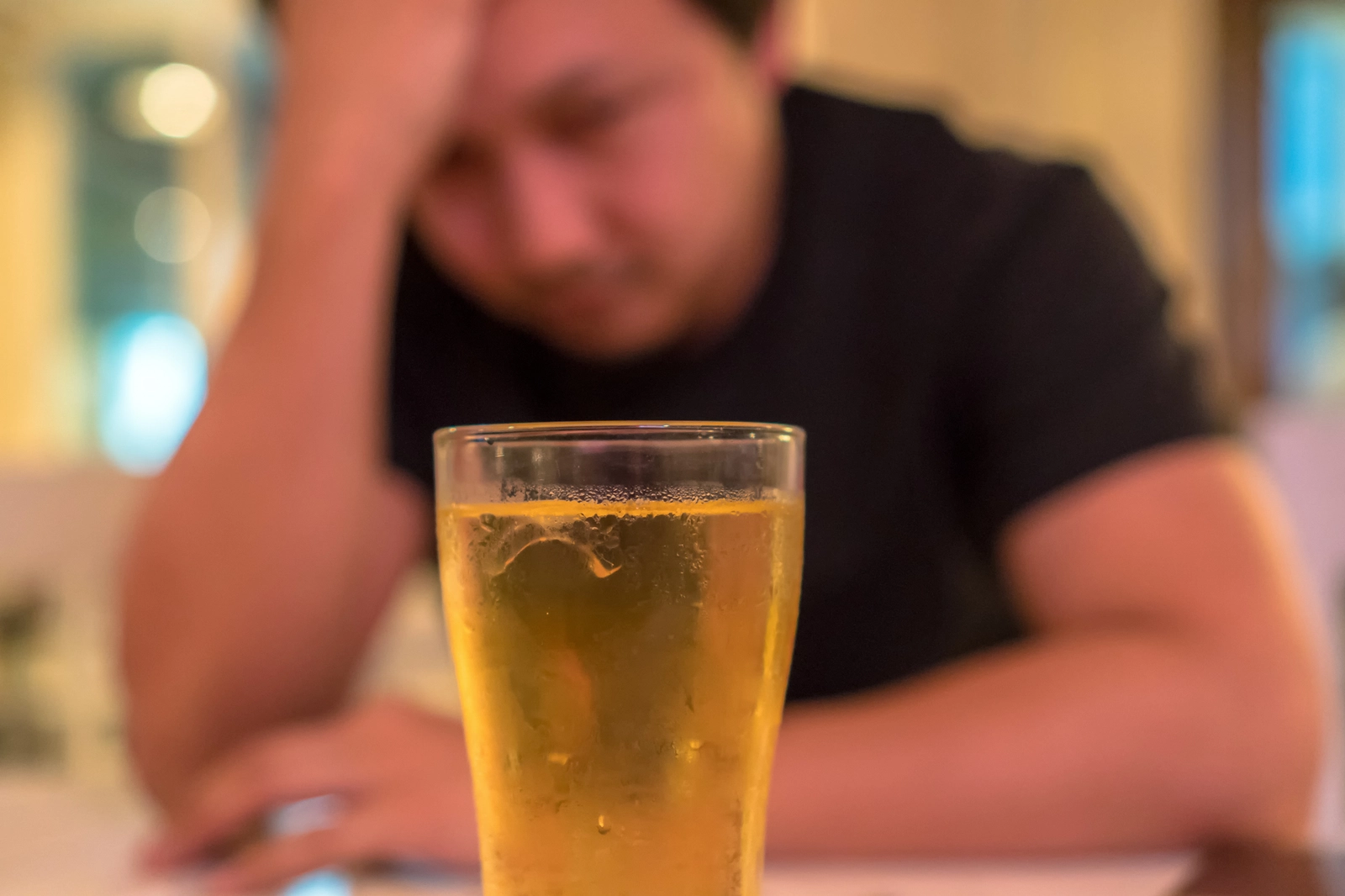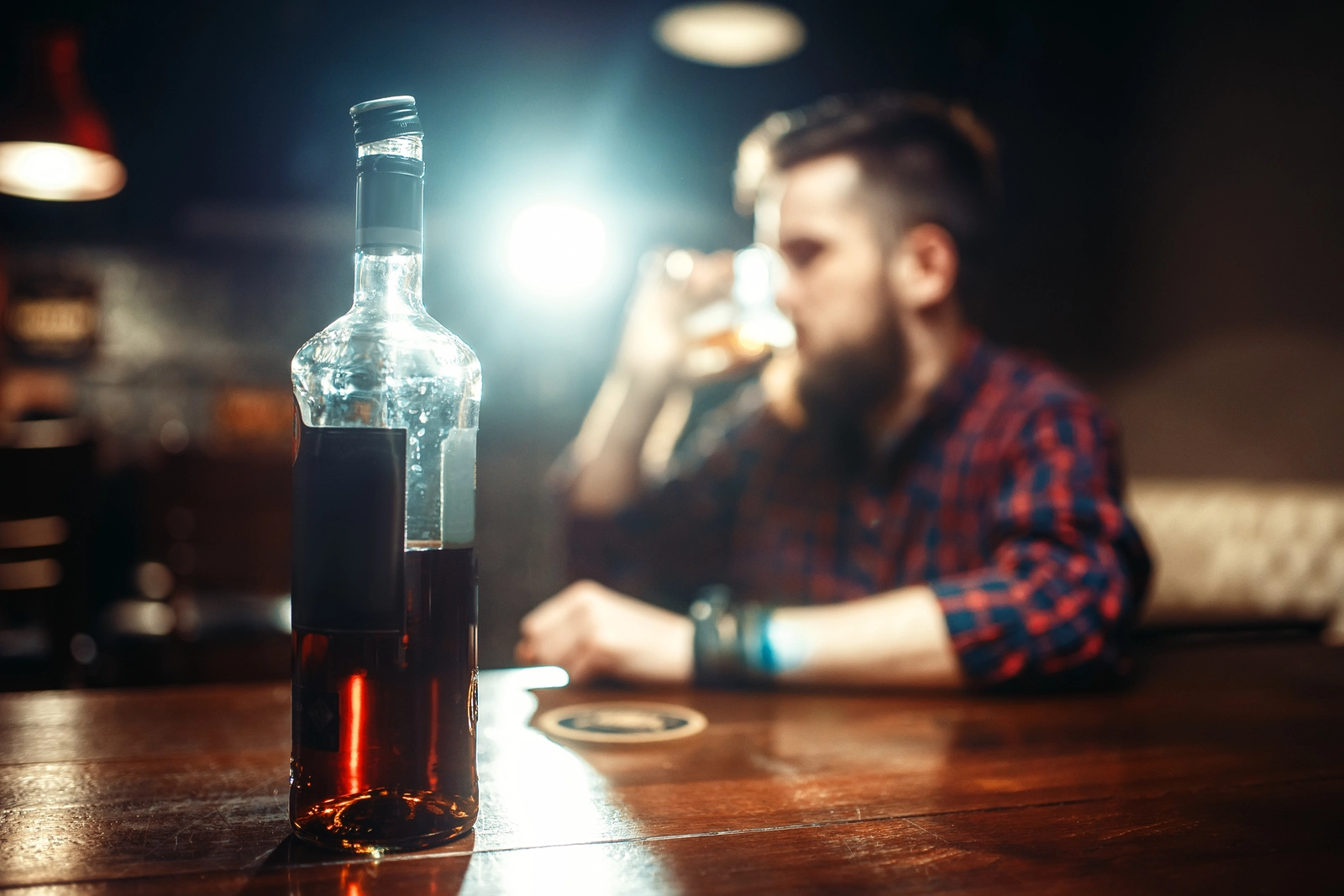Table of Contents
- What Is Blacking Out?
- Signs and Symptoms of an Alcohol Blackout
- What Causes Blacking Out?
- What Happens During Blackout Drinking?
- Dangers of Binge Drinking and Blackouts
- Who Is at Risk of Being Blackout Drunk?
- Is Blackout Drinking a Sign of Alcohol Addiction?
- How to Avoid Alcohol Blackouts
- Seek Help for Alcohol Addiction
Key Points
- Blacking out from alcohol involves drinking until you blackout, causing a loss of memories of what happened during intoxication.
- Blacking out is different from passing out, which is a loss of consciousness instead of a loss of memory.
- Alcohol impacts the brain’s ability to form and store memories, causing gaps while you are drunk.
- Blacking out from alcohol has risks beyond losing your memory, including engaging in risky behaviors.
- While blacking out isn’t part of the addiction criteria, it can be an indicator that you have an alcohol use problem.
Blacking out from alcohol, also known as being “blackout drunk,” involves a loss of memory of what occurred while you were intoxicated. This is a common practice with social drinking, particularly with younger people, but there are risks to drinking to the point of a blackout.
What Is Blacking Out?
Being blackout drunk or blacking out from drinking is known as an alcohol-induced blackout and involves drinking to the point of having “blackouts” in your memory.[1] This means you may not remember what happened while you were intoxicated, or you may have gaps in your memory from the night before.
Blacking out from alcohol isn’t the same as passing out. Blackouts are a loss of memory that’s temporary while passing out is a loss of consciousness from excessive alcohol consumption. Alcohol-related blackouts cause you to lose your memory but not your consciousness. For example, you may interact with people and not remember, but it may not be obvious to those around you.
A blackout may occur if you drink alcohol to the point of impairing the way your brain transfers memories from short-term to long-term memory.[2] There are two different types of alcohol blackouts: a fragmentary blackout or an en-bloc blackout.[3] A fragmentary blackout is known as a “grayout” or “brownout” and causes gaps in your memory with intact memories, while an en-bloc blackout causes amnesia that can last for hours. You typically have no recollection of the events because the memories weren’t formed, or you can’t access them.
Blacking out and passing out are different, but it’s possible to drink alcohol to the point of blacking out and then passing out. If you lose consciousness from alcohol consumption, it’s a sign of an alcohol overdose and requires immediate medical attention.
Signs and Symptoms of an Alcohol Blackout
Alcohol blackouts are difficult to identify because you may not know you’re in the midst of one while it’s happening. Typically, you only know you experienced an alcoholic blackout the next day when you can’t remember things like talking to people, having sex, spending money, or driving a car.
Alcohol blackout symptoms may appear similar to intoxication and can include:
- Difficulty speaking
- Headaches
- Dizziness
- Muscle spasms
- Vision changes
What Causes Blacking Out?

Drinking to the point of blacking out can occur with binge drinking. However, it’s also possible to experience a blackout if you overindulge in alcohol or combine it with opioids, benzodiazepines, or other central nervous system depressants.
Binge drinking is a pattern of excessive drinking that increases blood alcohol concentration (BAC) to high concentrations of 0.08g/dl or greater.[4] Binge drinking for men is 5 or more drinks, or a woman has 4 or more drinks in 2 hours. Alcohol blackouts can happen if your BAC is 0.16% or higher.[5] This can happen if you drink a lot quickly or drink more than your body can process efficiently, causing your BAC to rise rapidly.
What Happens During Blackout Drinking?
Blacking out is anterograde amnesia, which means the brain can’t form or store new memories. Though the mechanism behind blackouts isn’t well understood, it’s believed to be tied to the area of the brain that creates memories – the hippocampus – and its ability to function while under the influence of alcohol.[6] Alcohol can affect the way the receptors in the brain behave, hindering steroid production and inhibiting the connection between brain cells.
Combining certain drugs with alcohol, such as central nervous system depressants like z-drugs, sedatives, or benzodiazepines, increases the risk of blackouts and memory loss.[7]
Dangers of Binge Drinking and Blackouts
Alcohol blackouts can indicate a problematic pattern of drinking that has other risks. The short-term effects of excessive alcohol use include:[8]
- Alcohol overdose (alcohol poisoning)
- Accidents
- Injuries
- Violent behaviors
- Risky sexual behavior
Excessive alcohol use over long periods can have adverse health effects, such as:[9]
- Heart disease
- Liver disease
- Stroke
- Pancreatitis
- Cancer
Who Is at Risk of Being Blackout Drunk?
Alcohol-related blackouts can happen if you drink excessively or rapidly, leading to a rise in your BAC to 0.16%. However, blackouts can happen at lower BAC levels if you use alcohol with other drugs. Binge drinking, drinking on an empty stomach, or drinking alcohol with other drugs can cause BAC to rise quickly, leading to blackouts.[10]
Women are at a greater risk for blackout drinking because they reach a high BAC faster than men. People who binge drink also have an increased risk of blackouts, particularly young adults and college students who are more likely to binge drink.[11]
Is Blackout Drinking a Sign of Alcohol Addiction?
Experiencing a blackout doesn’t necessarily mean you have an alcohol addiction. However, blackouts can be a sign of dangerous drinking patterns and possible problem drinking that can develop into an addiction. If you black out often, it’s time to consider your alcohol use patterns.
Alcohol use disorder, as defined by the Diagnostic and Statistical Manual of Mental Disorders (DSM-5), has the following criteria:[12]
- Trying to cut back or stop alcohol use without success
- Drinking alcohol in high amounts or over longer periods than intended
- Spending a lot of time obtaining, using, or recovering from alcohol use
- Experiencing cravings for alcohol
- Failing to fulfill major obligations at home, school, or work because of alcohol
- Continuing alcohol use despite having persistent or recurrent social or interpersonal problems related to alcohol use
- Giving up important social, occupational, or recreational activities because of alcohol use
- Using alcohol in situations in which it is physically hazardous, such as driving under the influence
- Continuing alcohol use despite knowledge of having physical or psychological problems caused by it
How to Avoid Alcohol Blackouts
If you black out often and want to prevent this from happening, the best option is to drink alcohol in moderation – or avoid drinking completely. Here are some tips for responsible alcohol use:
- Understand the standard drink, a 12-ounce beer, a 5-ounce glass of wine, or a drink with one shot of liquor, and limit your use.[13]
- Keep track of your drinks to avoid overconsuming alcohol and increasing your BAC.
- Ask friends or family for help in pacing your alcohol consumption.
- Avoid situations or people that may encourage you to drink excessively.
Seek Help for Alcohol Addiction
If you have frequent blackouts from alcohol or concerns about your alcohol use patterns, an evaluation from a mental health professional can help you understand if you have an alcohol use disorder. Alcohol blackouts aren’t harmless, and you may experience adverse effects beyond memory loss.




